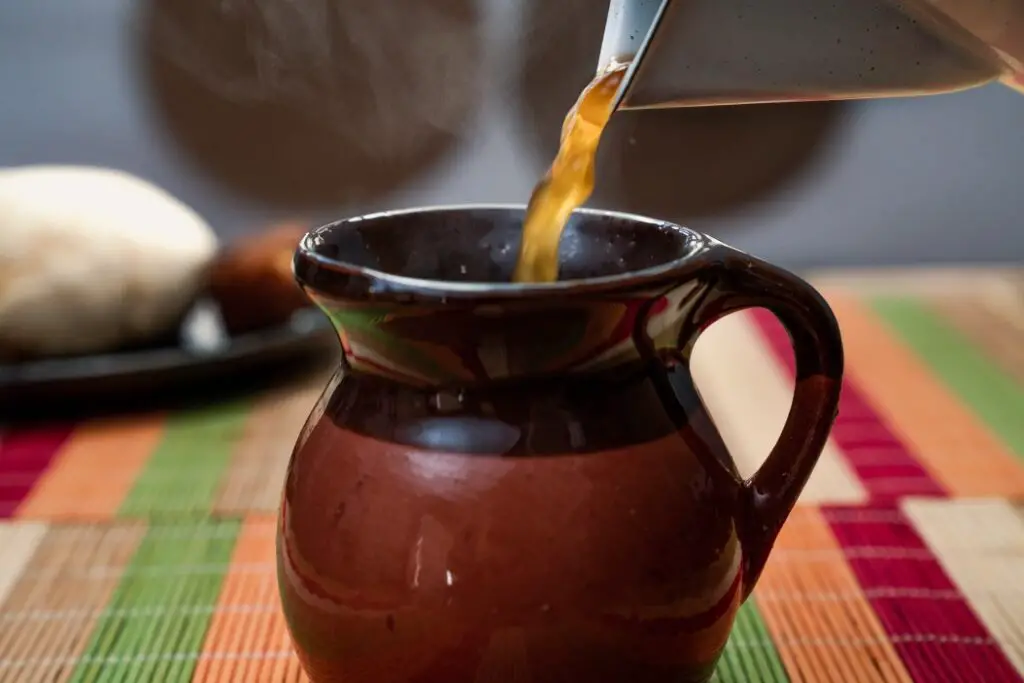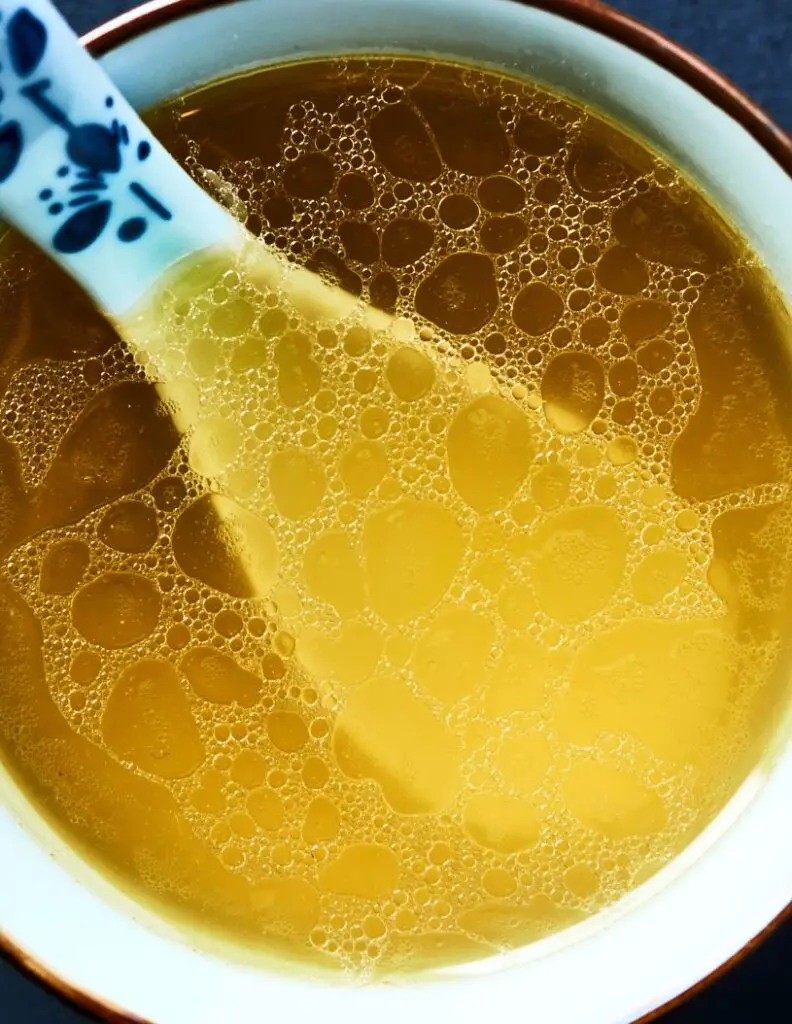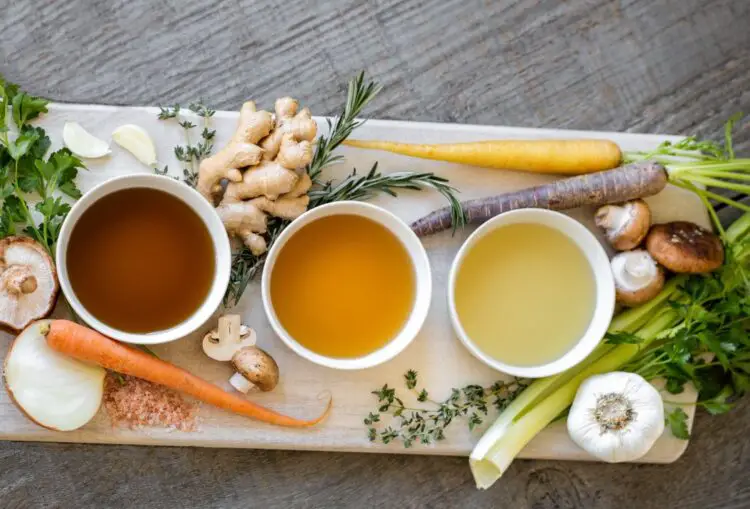Chicken is a versatile ingredient that can be transformed into a flavorful liquid base to enhance soups, stews, sauces, and more. But with so many chicken bouillon, broth, or stock options available, it can be confusing to determine which one to use. Choosing the right chicken base comes down to understanding the differences between bouillon, broth, and stock in terms of ingredients, uses, flavor, and consistency. This will allow you to select the best chicken base to suit your cooking needs and achieve the desired results.
Chicken bouillon, broth, and stock are often used interchangeably in recipes. However, there are distinct differences between these three chicken bases in how they are made and their resulting texture and flavor. Bouillon is made from chicken broth or stock that has been dehydrated and compressed into a cube or granule form. Broth is made by simmering chicken meat and bones in water with vegetables and herbs. It has a thin, clear appearance and mild flavor. Stock is made by simmering chicken bones, meat, and vegetables in water for hours to extract gelatin and collagen. It has a rich, thick texture and intense chicken essence.
Understanding the unique qualities of bouillon, broth, and stock will ensure you choose the right chicken base for your recipe. Consider the flavor intensity, thickness, and overall purpose you want the chicken base to serve. With the knowledge of how these three chicken bases differ, you can confidently select the appropriate option to create delicious soups, stews, gravies, and more.
Key Takeaways:
Chicken bouillon, broth, and stock are all flavorful liquids used in cooking, but they are not the same thing. Here are the key differences:
- Bouillon – Dehydrated, compressed cube or powder made from chicken stock mixed with salt and MSG. Needs water to reconstitute. Provides concentrated chicken flavor.
- Broth – Thin, flavorful liquid made by simmering chicken meat, bones, and vegetables in water. Unthickened and unclarified. Light bodied.
- Stock – Rich, intense liquid made by simmering chicken bones, meat scraps, and vegetables in water for hours. Unthickened and unclarified. Can use as a base for soups, stews, etc.
While they are not identical, these chicken bases can be substituted for one another:
- Bouillon can replace broth by dissolving cube or powder in hot water. May need to adjust seasoning.
- Broth can replace stock but the texture will be thinner. Can add a slurry or cornstarch to thicken if needed.
- Stock can replace broth but the texture will be thicker. Adjust by adding water.
With these substitutions in mind, you can adapt recipes when you don’t have the exact chicken base called for. The key is getting the flavor and thickness as close as possible to the original.
Chicken Bouillon, Broth, or Stock: The Basics
Understanding the nuances of these three chicken flavoring options helps you cook and season more effectively. Keep some handy in your pantry and use bouillon, broth, and stock interchangeably when required.
What is Chicken Bouillon?
Chicken bouillon is a concentrated source of chicken flavor that comes in several forms like cubes, paste, powder, or liquid. The main ingredients in bouillon are dehydrated chicken stock, vegetables, fat, salt, and seasonings like turmeric, parsley, and coriander. It may also contain monosodium glutamate (MSG) in some cases. Chicken bouillon can be used to add chicken flavor to a variety of dishes in a convenient way. Some key features of chicken bouillon include:
- Comes in cube, paste, powder, or liquid form
- Made from dehydrated chicken stock
- Contains vegetables, fat, salt and seasonings
- Provides concentrated chicken flavor
- Adds flavor to soups, stews, rice dishes, etc.
- May contain MSG
Using chicken bouillon is an easy way to infuse dishes with chicken flavor without needing to prepare chicken stock from scratch. It’s a versatile pantry staple for home cooks.
What is Chicken Broth?
Chicken broth is a flavorful liquid made by simmering chicken meat and bones in water along with vegetables, herbs, and spices. The chicken pieces are simmered for an extended period of time to extract flavors, nutrients, and gelatin from the bones. The liquid is then strained to remove the solids, leaving behind a clear, thin, and mildly flavored broth. Chicken broth can be used as a base for soups, stews, gravies, risottos, and other dishes. It provides more flavor than plain water. Some key features of chicken broth include:
- Made by simmering chicken, bones, vegetables, herbs and spices
- Strained to remove solids
- Thin, clear appearance
- Mild chicken flavor
- Used as a cooking liquid or soup base
- More flavorful than plain water
- Store-bought or homemade
Chicken broth imparts a subtle chicken essence without overpowering other ingredients. It can add flavor and moisture to a variety of savory dishes and sauces. Both homemade and store-bought chicken broth are versatile ingredients for home cooks.
What is Chicken Stock?
Chicken stock is a rich, flavorful liquid made by simmering chicken bones, meat, and vegetables in water for an extended period of time. This allows the stock to extract gelatin, collagen, and nutrients from the bones as well as the essence and flavor from the ingredients. The liquid is then strained to remove the solids. Chicken stock can be used as the base for many dishes like soups, stews, gravies, and sauces. It provides a deeper, more intense chicken flavor compared to broth. Some key features of chicken stock include:
- Made by simmering chicken bones, meat, and vegetables
- Long-simmering time extracts gelatin, collagen, and flavor
- Strained to remove solids
- Rich, thick texture
- Intense chicken flavor
- Unseasoned/saltless
- Used as a base for soups, stews, etc.
Chicken stock is valued for its rich mouthfeel and concentrated chicken essence. The collagen from the bones gives it more body compared to broth. It provides a deep chicken flavor without added salt or seasonings.

Quick Comparision of Chicken Broth vs. Chicken Bouillon vs. Chicken Stock
| Feature | Chicken Bouillon | Chicken Stock | Chicken Broth |
|---|---|---|---|
| Flavor Concentration | More concentrated and intense flavor | Light chicken flavor, not as concentrated | Milder flavor |
| Form | Dehydrated cubes, granules, powder, paste | Liquid | Liquid |
| Uses | Marinades, stir-fries, fried rice, rubs | Soups, sauces where pure chicken flavor is desired | Soups, casseroles, pasta, risotto, poaching |
| Versatility | Can be used in more dishes due to concentrated flavor | Adds light chicken taste without overpowering | Better for dishes where milder flavor is preferred |
| Convenience | Easy to store, lasts longer, needs rehydration | Perishable, takes time to make | Ready to use, takes more storage space |
| Cost | Typically cheaper than broth | N/A (Usually home-made, “stock cubes” are actually “bouillon” | Typically more expensive than bouillon |
| Shelf Life | 2 years (cubes or granules) | 2-3 days refrigerated | 1 year (unopened), 3-5 days (opened) |
| Sodium Content | Higher sodium content | No added salt, pure chicken taste | Lower sodium content |
| Preparation | Made by simmering chicken bones, herbs, and spices [1][2] | Simmering chicken meat/bones/veg in water [6}[7] | Made by stewing chicken meat, veggies, and seasonings [3][4][5] |
| Nutritional Value | Lower in nutrients compared to homemade broth | More gelatin and nutrients than bouillon | Higher in nutrients compared to bouillon |
Chicken Bouillon, Broth, or Stock: Substituting One for the Other
Chicken bouillon, stock, and broth can generally be used interchangeably in recipes calling for a chicken-flavored liquid base. However, there are some differences to keep in mind when substituting one for the other. Chicken bouillon is made from dehydrated stock and provides a very concentrated chicken flavor. Chicken stock is unseasoned and made by simmering bones, meat, and vegetables. It has a rich, thick texture. Chicken broth is seasoned and made just from simmering chicken meat and vegetables resulting in a thinner, clearer liquid.
When choosing a substitute, opt for broth or bouillon when a lighter consistency and more seasoning are desired. Use stock for a thicker, more intense chicken flavor. Some guidelines include:
- Bouillon can replace broth or stock but use less as it’s very concentrated
- Broth can replace stock but the flavor won’t be as rich
- Stock can replace broth but the texture will be thicker. Adjust by adding water
- Water down substitutes if needed to achieve the right consistency
- Adjust seasonings since the stock is unsalted
With these substitutions in mind, you can adapt recipes when you don’t have the exact chicken base called for.
Chicken Flavoring Face-Off: Bouillon vs. Broth vs. Stock
Chicken bouillon is made from dehydrated chicken stock and provides an intense, concentrated chicken flavor. It comes in cube, paste, powder, or liquid form for ease of use. Chicken broth is a thin, clear liquid made by simmering chicken meat and vegetables. It has a milder chicken taste and is often consumed on its own or used as a base for soups. Chicken stock differs from bouillon and broth in important ways:
- Made by simmering chicken bones, meat, and vegetables
- Unseasoned and salt-free
- Long-simmering time extracts gelatin and collagen
- Has a rich, thick texture
- Provides a deep, intense chicken flavor
While bouillon, broth, and stock can generally substitute for one another, stock stands out for its rich mouthfeel and robust chicken essence. Bouillon offers concentrated flavor in a convenient form. Broth provides lighter seasoning and mild chicken notes. Consider the thickness, intensity, and purpose you want from your chicken base when deciding between bouillon, broth, and stock. For example, Caldo Verde is a soup thickened with potato that could use chicken broth but the chicken stock would overpower it.

Chicken Bouillon, Broth, or Stock: Which Should You Use and When?
Chicken bouillon, stock, and broth each have their ideal uses based on factors like flavor intensity and texture. Chicken bouillon is concentrated and provides a boost of chicken flavor. It’s useful when only a small amount of liquid is needed. Chicken stock has the most body and richest flavor due to the collagen extracted from bones during simmering. It works well as the base for hearty dishes like stews, gravies, and risotto. Chicken broth has a thinner, clearer texture and milder taste. It can be consumed on its own as a soup or used to cook grains and vegetables. Some guidelines on when to use each:
- Bouillon – Adding flavor to rice, pasta, and veggies
- Stock – Making soups, stews, braises, gravy
- Broth – Drinking plain or in light soups
- Bouillon/broth – Deglazing pans, cooking grains
- Stock/broth – Poaching chicken, cooking risotto
Consider the thickness, intensity of flavor, and purpose when choosing between chicken bouillon, stock, and broth. Opt for bouillon to add a concentrated chicken taste, stock for a rich body, and broth for a milder seasoned liquid.
Nutritional Profiles: How Do Chicken Bouillon, Broth, or Stock Compare?
Chicken bouillon is very low in calories but extremely high in sodium content. Bouillon contains 42% of the daily recommended sodium intake per one-cup serving. It provides small amounts of nutrients like copper, selenium, riboflavin, and magnesium. However, the high sodium levels make bouillon a less nutritious option.
Chicken broth contains some vitamins like A, C, E, K, and B vitamins as well as minerals such as calcium, manganese, and copper. The nutrients come from simmering chicken meat and vegetables to make the broth. The bones used to make stock also impart some micronutrients like chondroitin and glucosamine.
Chicken stock has a similar nutritional profile to chicken broth. Both are low in calories and fat, with minimal amounts of vitamins and minerals. However, homemade versions of both stock and broth have higher nutrient levels compared to store-bought. Overall, chicken stock and broth have relatively comparable nutritional value while bouillon is high in sodium.

What are the Main Ingredients of Chicken Bouillon, Broth, or Stock?
Chicken bouillon, stock, and broth may seem quite similar, but their specific ingredients and preparation methods set them apart. While bouillon, stock, and broth all deliver chicken flavor, the particular components used to make each one gives them their unique textures, concentrations of taste, and applications.
Bouillon relies on dehydrated chicken stock along with seasonings like MSG for its intense flavor. Chicken stock is made by simmering bones, meat, and vegetables for a long time to extract gelatin and collagen. Chicken broth derives delicate chicken notes just from meat and aromatics without the use of bones. Understanding the core ingredients in bouillon, stock, and broth provides insight into how they differ and what makes each one distinctive.
Chicken Bouillon
- Dehydrated chicken stock
- Vegetables (onion, celery, carrots)
- Chicken fat
- Salt
- Seasonings (turmeric, thyme, parsley)
- Monosodium glutamate (MSG)
Chicken Stock
- Chicken bones
- Chicken meat (wings, feet, neck)
- Aromatic vegetables (onion, celery, carrots)
- Herbs (bay leaves, parsley)
- Water
Chicken Broth
- Chicken meat
- Vegetables (onion, celery, carrots)
- Herbs (thyme, parsley, bay leaves)
- Salt and pepper
- Water
The main difference is that bouillon uses dehydrated chicken stock while stock and broth start with raw chicken. Bouillon also contains MSG for flavor. Stock uses bones to extract gelatin and collagen during simmering. Broth is made just from meat and seasonings.

How to Properly Store Chicken Bouillon for Maximum Shelf Life?
Chicken bouillon, whether in cubes, paste, powder, or granule form, has a relatively long shelf life compared to other homemade stocks and broths. This extended shelf life is due to bouillon’s dehydrated state and high sodium content. When stored properly in a cool, dry pantry, unopened chicken bouillon can last around 2 years past its best-by date before losing flavor and aroma. Once opened, it’s important to store chicken bouillon in an airtight container to retain freshness and prevent moisture from activating the bouillon. Exposure to air can cause bouillon to cake or get sticky. An airtight container keeps bouillon dry and free-flowing. Properly stored opened chicken bouillon will stay fresh for about 1 year. Some tips for maximizing shelf life include:
- Store unopened bouillon in a cool, dry pantry
- Transfer the opened bouillon to an airtight container
- Keep bouillon dry by avoiding humidity and moisture
- Use opened bouillon within 1 year
Following these storage guidelines allows both unopened and opened chicken bouillon to retain its signature chicken flavor and aroma for extended periods.
Can Chicken Bouillon, Broth, or Stock Be Used in Cooking Eggplant Without Frying?
Yes, there are several ways to cook eggplant without frying it, and one way is to incorporate chicken bouillon, broth, or stock into the cooking process. By using these flavorful liquids to braise or simmer the eggplant, you can create a rich, savory dish without the need for frying.
How to Properly Store Chicken Stock for Maximum Shelf Life?
Chicken stock can be stored for up to 4 days in the refrigerator or around 3 months in the freezer before it starts losing flavor and aroma. For long-term storage, homemade or store-bought chicken stock should be portioned into airtight containers and frozen. To maximize the shelf life of chicken stock, follow these storage guidelines:
- Refrigerate stock for up to 4 days
- Freeze stock for up to 3 months
- Use freezer-safe, airtight containers
- Leave 1-inch headspace in containers before freezing
- Label containers with date and contents
- Avoid repeated thawing and freezing as this affects quality
- Bring refrigerated stock to a boil before using
Proper storage keeps chicken stock fresh and ready for making soups, stews, and sauces. Freezing is ideal for long-term storage. Refrigerated stock should be boiled before use since harmful bacteria can grow over time. Following these simple steps allows you to keep homemade or store-bought chicken stock on hand.
How to Properly Store Chicken Broth for Maximum Shelf Life?
Chicken broth can be stored in the refrigerator for 3-4 days or frozen for up to 3 months before losing flavor and quality. For long-term storage, homemade or store-bought chicken broth should be portioned into airtight containers and kept frozen. Follow these tips for maximizing the shelf life of chicken broth:
- Refrigerate for 3-4 days
- Freeze for up to 3 months
- Use freezer-safe containers
- Leave headspace before freezing
- Label with date
- Avoid repeated freezing/thawing
- Boil refrigerated broth before use
- Store unopened broth in a cool, dry pantry
Proper storage is key for maintaining the flavor and shelf life of chicken broth. Refrigeration preserves it for short-term use. Freezing in airtight containers is best for long-term storage. Boiling it before use kills any bacteria that may have grown during refrigeration. With proper storage and handling, homemade or store-bought chicken broth can be kept on hand for months.
The Great Chicken Bouillon, Broth, or Stock: Settled
Chicken bouillon, broth, and stock share similarities but have distinct differences that make each one ideal for certain culinary uses. Chicken bouillon is made from dehydrated stock and provides a bold, concentrated chicken flavor perfect for enhancing the taste of soups, stews, rice, and vegetables when just a small amount of liquid is needed. Chicken broth has a thinner, clearer texture and milder chicken taste that works well as a base for light soups or as a flavorful cooking liquid for grains and veggies.
Chicken stock stands out with its rich, thick texture and deep chicken essence extracted from simmering bones. It brings body and intense chicken flavor to hearty dishes like gravies, braises, and heavy soups without overpowering other ingredients. While bouillon, broth, and stock can generally substitute for one another, keeping their unique qualities in mind allows you to select the ideal chicken base to suit your cooking needs.
Understanding the ingredients, uses, and flavor profiles of chicken bouillon, broth, and stock provides clarity to choose the right one. Bouillon for concentrated flavor, broth for a lighter seasoned liquid, stock for a rich body and robust taste – with this knowledge, you can confidently cook with the chicken base that best fits your recipe.

